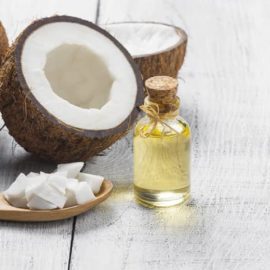Global warming is bringing forth many issues that will dramatically change the way people live. One of the most In today’s context, there’s only one way to develop the right anti-frizz treatment: by acknowledging global warming, its effects on human health and well-being and how companies can contribute to alleviating them. One of the most pressing matters is to determine its impact on health, a thought that has already concerned many consumers: according to a survey by Ipsos Mori, 37% of global citizens put climate change as one of the top environmental issues. Hair is known to be especially sensitive to seasonal changes and consumers are already demanding sustainable, natural products that will help them maintain their hair healthy against new climatic conditions. In this context, finding the right anti-frizz treatment will become a priority for many.
At the same time, the public insists on having access to sustainable, eco-friendly products that won’t further these detrimental processes for the planet. In fact, a 2019 report by CGS found out that more than two-thirds of the respondents consider sustainability when making a purchase. Thus, the right anti-frizz treatment will not only address seasonal changes to contribute to hair health, but will provide a sustainable formula that targets both environmental and health-conscious consumers.
Content
Climate and hair: the need for anti-frizz treatment products
Washing, vigorously brushing, ironing or dying hair exposes it to harsh conditions on an everyday basis. However, extreme weather can also put the hair at risk: both exposure to sunlight and to low temperatures reduces hair elasticity (Sinclair, 2007). Many forecast that haircare problems will worsen as climate change distorts seasons and makes heat or cold more extreme. This translates into changing consumer demands, such as products that provide an anti-frizz treatment at home.
With warmer temperatures, consumers tend to cleanse their hair more frequently, in part due to head perspiration that tends to be excessive in these climatic conditions. Many people complain their hair turns lifeless and flat due to increased humidity, while exposure to sun can also dry hair, making it less elastic or even cause scalp problems like getting it sunburn.
Hair care for this season can benefit from using jojoba oil or aloe vera coverings, while shampoos designed for dry hair are recommended. Those looking for the natural and well-being recipe can also combine hair care with a mineral-rich diet that includes abundant fruit and vegetables.
During the colder seasons, dryness, the lack of elasticity and an itchy scalp become common problems, while a lowered humidity can also worsen split ends. Besides, just like during warmer months, the whole body responds to a change in temperatures and climatic conditions. Thus, the lymphatic system typically slows down during winter, leading to a loss in minerals and potential hair loss. In this case, treatments and products to stimulate blood flow to the scalp have proven to be the most effective.
With extreme changes expected in the near future, consumers are already worried about how climate transforms their hair: a 2017 study by the British Journal of Dermatology on the ‘Seasonality of Hair Loss’ found that Google searches for hair loss were much greater during autumn and summer than in spring. Providing them with a sustainable anti-frizz treatment that targets seasonal changes is a sure way to gain their attention and trust.
The solution? Focus on natural ingredients for anti-frizz treatments
Consumers are facing new and unknown climatic conditions for which they are demanding new formulas for anti-frizz products and beyond. Furthermore, a shift in the market has happened: consumers expect brands to address their well-being by offering a combination of natural ingredients and proven formulas. In fact, according to industry statistics, at least 52% of consumers prefer buying shampoo with natural or organic ingredients. Some brands are quickly adapting to this: by August 2019, 45% of the top 10 hair care ingredient claims worldwide included some reference to natural ingredients.
A number of natural active ingredients have been developed to meet the consumers’ demand for more natural and sustainable products. Nori Complex stands out among the natural ingredients for hair care and anti-frizz treatment. It consists of a marine active ingredient containing amino acids, proteins, and polysaccharides that help hair recover through extreme seasonal changes. The result is stronger, lively hair and frizz control using a product that pushes the natural, organic and sustainable ideals further.
Nori Complex uses millennia-old knowledge about natural ingredients to repair hair that has been damaged by heat or cold.
- On the one hand, Nori seaweeds (known as Laver in the UK and Karengo in New Zealand) have been used for centuries as a source of nutrition and medicine all around the world. Its high proportion of proteins and amino acids make Nori the perfect seaweed for restructuring haircare treatments.
- On the other hand, Nori Complex also incorporates Tara seeds, a plant species native to Peru that contains molecule-weight polysaccharides that provide a natural moisturizing function.
The result: hair fibers treated with Nori Complex present a significant increase in both strength and elasticity, providing an effective anti-frizz treatment.
On top of this, Provital has developed an exclusive 3D Matrix to release this active ingredient, providing a long-lasting anti-frizz treatment by sealing the active ingredients and humidity inside hair fibers, among other benefits. Nori Complex thus takes significant steps to meet consumer demands for a more sustainable beauty industry in which natural, ethically-sourced ingredients prevail.
No comments yet
There are no comments on this post yet.





Leave a comment